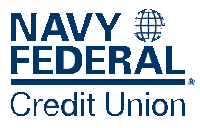The best credit unions for small businesses offer outstanding business checking and savings products that earn interest on your business reserves. Unlike traditional banks, some credit unions have strict membership requirements. The ones we list are accessible across the US or have targeted geographic or employment requirements available to enough businesses to merit inclusion.
Check the membership requirements of any credit union before applying for a business account. While some credit unions have open membership nationwide, they may require your business to be organized in a specific location.
Here are the six best credit unions for small businesses, with links directly to the provider websites:
- Affinity Plus FCU Federally insured by the National Credit Union Administration : Best overall credit union for a wide range of business products
- Navy Federal Credit Union Federally insured by the National Credit Union Administration : Best for military members, families, and DoD personnel
- Self-Help FCU Federally insured by the National Credit Union Administration : Best for loans for small businesses and social entrepreneurs
- Bethpage Federal Credit Union Federally insured by the National Credit Union Administration : Best for interest-earning checking and savings
- Credit Union 1 Federally insured by the National Credit Union Administration : Best for easy membership and scalable checking accounts
- First Tech Federal Credit Union Federally insured by the National Credit Union Administration : Best for business insurance
In addition to the best credit unions for business accounts listed above, there are banks and financial technology (fintech) companies that provide outstanding business banking products. Those providers are listed below, with links directly to the provider websites:
- Bluevine Bluevine is a financial technology company, not a bank. Deposits are FDIC insured up to $3,000,000 per depositor through Coastal Community Bank, Member FDIC, and program banks. : Best overall fintech for high Annual Percentage Yield (APY), line of credit, and international payments
- Novo Novo is a fintech company; not a bank. Deposit account services provided by Middlesex Federal Savings, F.A., Member FDIC : Best for businesses seeking rapid access to funds and faster payments
- U.S. Bank Member FDIC : Best overall for free checking and businesses with low transaction volumes
Earn up to 3.70% with Bluevine Business Checking |
|
Best Credit Unions for Small Businesses at a Glance
Monthly Fee | Business Checking APY | Business Savings APY | Available to all Businesses? | Credit Union Promos | |
|---|---|---|---|---|---|
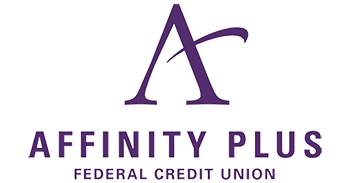 Small Business Checking | $0 | 0.05% or 0.10% | 0.10% | Yes | |
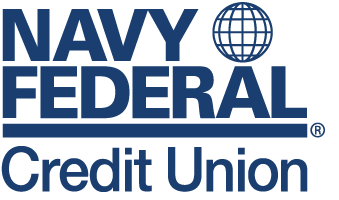 Business Checking | 0.01% to 0.45% | Varies | No current business promos | ||
 Business Checking | 0.05% | 0.30% | Yes | No current business promos | |
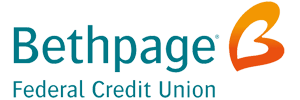 Free Business Checking | $0 | 0.20% | 0.10% | Yes | No current business promos |
 Business Express Checking | N/A | N/A | Yes | $50 cash reward for each new line at Spectrum Mobile | |
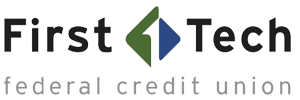 Simple Business Checking | N/A | 0.01% | Yes | No current business promos | |
Affinity Plus Federal Credit Union: Best Overall Credit Union for a Wide Range of Business Products

What We Like
- More than 60,000 ATMs through MoneyPass, Co-op, and SUM ATM networks
- Earn rewards with debit purchases
- Highly rated mobile banking app
Drawbacks
- No nationwide branches
- Business loan applications require two years of federal and state tax returns―both business and personal
Features
- Merchant services including point-of-sale (POS) solutions
- Savings and money market accounts
- Certificates of deposit (CDs)
- Vehicle and equipment loans
- Real estate loans
- Multiple customer support options
- Cash and coin delivery with Loomis
- Access to over 60,000 ATMs nationwide
 | |
|---|---|
Required Opening Deposit | None |
Required Balance Minimum to Earn Interest | None |
Transaction Limit Before Fees |
|
Monthly Fee |
|
Domestic Wire Transfer Fees | $10 for incoming; $15 for outgoing |
International Wire Fees | $10 for incoming; $40 for outgoing |
ATM Fees | None at Affinity Plus, MoneyPass, Co-op, and SUM ATM networks |
APY |
|
Customer Service | In-branch, chat, video calls, and phone during business hours; secure messaging 24/7 |
Other Products | Business checking and savings accounts, CDs, business credit cards, lending products, and cash and coin delivery with Loomis |
First, business owners need a personal membership with Affinity Plus (on their own or jointly). If your business is a sole proprietorship or limited liability company (LLC), the owner must be the one who opens the membership. To be a personal member, you must meet one of the two following criteria:
- Meet the geographic, school, or employment requirements listed on the provider’s website (see Affinity Plus FCU’s eligibility criteria).
- Make a one-time $25 dues payment to the Affinity Plus Foundation, supporting those making a positive impact in Minnesota communities.
Once you have a personal membership, you will need to gather the documents for your business type, then submit an interest letter through the company’s website.
When to Choose Affinity Plus Federal Credit Union
- You seek a wide range of business services and products: Affinity Plus FCU offers business checking and savings, which include money market accounts (MMAs) and certificates of deposit (CDs). A business credit card is also available.
- You want rewards for debit card purchases: Affinity Plus FCU has a rewards program that allows you to redeem points for gift cards, travel, cash back earnings, and more.
- You need interest-bearing account options: The provider offers an APY for its checking, savings, and CDs. While the checking and savings rates are low, CD rates go up to 4.506% APY, and business money market rates are up to 3.450% APY.
Affinity Plus offers a business credit card, lines of credit, equipment loans, vehicle loans, and merchant services. It even partnered with Loomis to provide cash and coin delivery. For small business owners looking for a well-rounded credit union for their business needs, Affinity Plus is an excellent choice.
Navy Federal Credit Union: Best Credit Union for Military Members, Families & DoD Personnel

What We Like
- 350 branches worldwide
- Branches in 30 states and US territories, including Washington, D.C., and Guam
- Checking, savings, money markets, CDs, loans, lines of credit, vehicle, and term loans
Drawbacks
- Restricted membership requirements
- No unsecured startup loans―businesses less than two years old
- $250 deposit for sole proprietorships and $255 for all other legal entities required
Features
- Merchant services
- Payroll processing
- Business insurance
- Resources for veterans starting a new business
When to Choose Navy Federal Credit Union
- You want to join the largest credit union in the US: Navy FCU has more than 14 million members, branches in 30 states, and over $177,700 billion in assets.
- You want to save on fees and earn interest on your accounts: This CU offers interest-bearing accounts with no monthly fees under its basic tier and waivable monthly fees for premium accounts.
While it has the most restrictive membership requirements on this list, Navy FCU is an outstanding choice for a small business with qualified owners. It is limited to service members, their families, and Department of Defense personnel.
Navy FCU requires a $250 deposit for sole proprietorships and $255 for other legal entities, along with several required documents to open an account (see Navy FCU’s list of documents). All owners must be Navy FCU members in good standing.
Self-Help Federal Credit Union: Best for Loans for Small Businesses & Social Entrepreneurs

What We Like
- Easy to qualify for membership
- Checking, savings, money markets, business loans
- Free online and mobile banking
Drawbacks
- Small business loans outside of Illinois and North Carolina must be larger than $500,000
- Startups and new nonprofits are limited to loans of $50,000 or less; secondary source of income required
- Does not offer lines of credit
Features
- Offers a full range of financial products and services, including Small Business Administration (SBA) loans, multifamily housing loans, and small business and commercial loans
- Investments go toward strengthening community organizations, businesses, and social justice efforts
 | |||
|---|---|---|---|
Required Opening Deposit | None | ||
Required Balance Minimum To Earn Interest | None | ||
Transaction Limit Before Fees |
| ||
Monthly Fee | $15; waived with combined average daily balance of $25,000 across all accounts | ||
Domestic Wire Transfer Fees | $0 incoming; $15 outgoing | ||
International Wire Fees | $0 incoming; $25 outgoing | ||
ATM Fees | None at Self-Help branch ATMs, Co-op ATMs, and Cashpoint ATMs in North Carolina | ||
APY |
| ||
Customer Service | By email, mail, contact form on its website, or phone during business hours Monday to Saturday | ||
Other Products | Checking, savings, money markets, CDs, commercial loans, Small Business Administration (SBA) 504 loans, CRE loans, and industry-specific loans |
You can join SHFCU in one of two ways:
- Join for free if you live, work, worship, or attend school in an eligible county, or have a family or employer affiliation. It serves communities and employer groups in California, Illinois, and Wisconsin. You can call (877) 369-2828 to verify.
- Pay a one-time fee of $5 to join its Center for Community Self-Help.
Membership forms can be downloaded from the company’s website and mailed in or dropped off at a branch.
When to Choose Self-Help Federal Credit Union
- You require different lending products: Loans include SBA 7(a), SBA 504, charter school, child care facilities, faith-based, food system, small business and nonprofit, multifamily housing, and other commercial real estate (CRE).
- You prefer fee-free accounts with no minimum opening deposit and monthly balance requirements: Both checking and savings accounts do not require a minimum opening deposit and monthly balances. They are also interest-bearing with waivable monthly fees. Note that transaction limits and excess fees apply.
- You want to save on wire transfers and avoid non-sufficient funds (NSF) fees: SHFCU does not charge for incoming wires and non-sufficient funds.
Bethpage Federal Credit Union: Best for Interest-earning Checking & Savings

What We Like
- Easy to qualify for membership
- Interest-earning checking and savings accounts
- No monthly maintenance fee
Drawbacks
- Branches in New Jersey and New York states only
- One type of business account for all businesses—except closing attorneys eligible for a business checking and an IOLA account
Features
- Retirement planning
- Investment services
- Succession planning
- Vehicle loans, commercial mortgages, lines of credit, and term loans
 | |
|---|---|
Required Opening Deposit | None |
Required Balance Minimum to Earn Interest | None; 1 cent to earn APY |
Transaction Limit Before Fees | None |
Monthly Fee | None |
Domestic Wire Transfer Fees | $0 for incoming; $20 for outgoing |
International Wire Fees | $0 for incoming; $30 for outgoing |
ATM Fees | None at Bethpage and Co-op network ATMs; no charges for out-of-network ATMs, but third-party fees may apply |
APY |
|
Customer Service | Via toll-free number, in-branch, or email |
Other Products | Business checking, savings, money market, credit card, CDs, merchant card processing, term loans, lines of credit, vehicle loans, and commercial mortgages |
To become a member of Bethpage FCU, you just need to open a $5 savings account, which can be done through its website. Anyone can apply to be a member.
When to Choose Bethpage Federal Credit Union
- You want to gain an excellent yield: Bethpage offers good interest rates on its business checking, savings, and MMAs, specifically CDs that earn up to 4.40% APY.
- You need a fee-free checking account: Its business checking accounts feature unlimited fee-free transactions and do not require minimum deposits and monthly fees. To continue drawing interest on your account, you only need 1 cent.
- You seek multiple lending products: Bethpage Federal Credit Union offers vehicle loans, CRE loans, lines of credit, and term loans.
Bethpage FCU branches are located in New Jersey and New York.
Credit Union 1: Best for Easy Membership & Scalable Checking Accounts

What We Like
- Easy to qualify for membership
- Variety of checking accounts
- Business overdraft protection through Courtesy Pay
Drawbacks
- Low-yield savings and checking
- High opening deposit requirement
Features
- Rewards-earning business credit card
- Offers sweep account, which links to your checking account automatically and allows you to set a target balance in your business checking account
- On a daily basis, balances higher than your target are transferred into your sweep account; if your checking account balance falls below your target, funds are transferred from the sweep account back into your business checking account
- Commercial real estate (CRE) loans and business credit card products
- Cannabis banking available
 | |
|---|---|
Required Opening Deposit | $100 |
Required Balance Minimum to Earn Interest | 1 cent to earn interest in interest-bearing accounts |
Transaction Limit Before Fees | 50 cents for transactions over the following monthly limits:
|
Cash Deposit Fees | 20 cents per $100 over the following monthly limits:
|
Monthly Fee |
|
Domestic Wire Transfer Fees | $0 for incoming; $30 for outgoing |
International Wire Fees | $0 for incoming; varies for outgoing |
ATM Fees | None at Co-op ATM network and shared branches; $1 per transaction at non-Credit Union 1 ATMs
|
APY | 0.01% on Business Express Plus and Business Express Premium Plus |
Customer Service | Via live chat, secure message, mail, email, or by toll-free phone number |
Other Products | Business checking accounts, savings account, cannabis banking; sweep accounts linked to your checking, business rewards credit card, commercial real estate loans, free online and mobile bill pay, and merchant services |
Credit Union 1 membership can be obtained in one of two ways:
- Be eligible within its field of membership (listed within the online application or by contacting a Member Solution Specialist; see Credit Union 1’s online application.
- Donate $5 to the Credit Union 1 Educational Development Association, which benefits the continuing education of selected groups.
When to Choose Credit Union 1
- You seek multiple checking accounts: Credit Union 1 has three business checking accounts, including a multi-tiered checking account product that can scale as your business grows.
- You need more monthly transactions and cash deposits: Middle- and top-tier accounts have high limits of free monthly transactions and cash deposits.
- You want to withdraw fee-free from out-of-network ATMs: Under its highest tier account, Business Express Premium Plus Checking, free ATM withdrawals are unlimited. This account requires an average daily balance of $25,000 to avoid the $50 monthly fee.
Credit Union 1 offers CRE loans and a business credit card. It also has Cannabis Banking and robust business services—including direct deposit payroll, employee accounts, sweep accounts, online wire transfers, and ACH payments.
First Tech Federal Credit Union: Best for Business Insurance

What We Like
- Variety of business insurance options
- Interest-earning checking
- 30,000 surcharge-free ATMs nationwide
Drawbacks
- Limited business loan options
- No business money market accounts
- No business credit cards
Features
- For business savings accounts, funds are completely liquid, which means you can withdraw anytime
- Full suite of personal accounts
- Personal financial advisors available
 | |
|---|---|
Required Opening Deposit | $100 |
Required Balance Minimum to Earn Interest | None |
Transaction Limit Before Fees | None |
Monthly Fee |
|
Domestic Wire Transfer Fees | $5 for incoming; $20 for outgoing |
International Wire Fees | $5 for incoming; $50 for outgoing |
ATM Fees | None at First Tech-owned and Co-op Network ATMs; $2 per transaction at out-of-network ATMs |
APY |
|
Customer Service | Via branch, secure message, phone, live chat, or mail |
Other Products | Business checking and savings, CDs, CRE lending, business insurance options, mobile and online bill pay, financial planning and investment services, and business credit cards |
To qualify for membership with First Tech Federal Credit Union, you need to meet one of the following criteria:
- You have a family member or household member who is already a First Tech member.
- You or a family member work for an innovative company on the company’s partner list or for the State of Oregon (visit First Tech Federal Credit Union’s partner page to see the complete list).
- You work or live in Lane County, Oregon.
- You belong to the Computer History Museum or the Financial Fitness Association, which can be joined at a branch or via an online application.
If you don’t meet any of those criteria, First Tech encourages you to contact its reps at (855) 855-8805 for more information.
When to Choose First Tech Federal Credit Union
- You’re looking to secure insurance with the same company where you hold a business account: First Tech FCU offers different types of business insurance, such as directors and officers liability insurance, inland marine insurance, business umbrella insurance, professional liability insurance, workers’ compensation insurance, commercial vehicle insurance, employment practices liability insurance, crime insurance, builders risk insurance, and a business owner’s policy.
- You want higher interest rates through CDs: It offers a 6-month certificate with up to 3.75% APY. You can open a CD for as little as $500 with six different deposit terms to choose from.
First Tech has CRE loans for multifamily, office and industrial buildings, self-storage, mobile home parks, flagged hotels, and healthcare. For portfolio loans, properties in all states are accepted, except Louisiana.
How We Evaluated the Credit Unions for Small Businesses
We reviewed dozens of credit unions nationwide to compile this buyer’s guide. When considering the best credit unions for small businesses, we looked at the following criteria:
- Nationwide availability
- APY on checking and savings accounts
- Required minimum opening deposits and balances
- Monthly fees and how waivable they are
- Transaction limits before fees
- Wire fees and ATM fees
- Availability of customer services
- Other business products and services
- Lending products, if available
When to Consider a Credit Union for Your Small Business
When deciding whether to go with a credit union vs a bank for your small business, you want to compare what features and perks you are getting from a credit union compared to a bank. You also need to consider the membership and monthly fees that might be associated with credit unions. While initial fees are often higher, APY on checking and savings accounts are usually higher with a credit union. In addition, loan rates are often lower.
It may come down to convenience, however. If you need a branch, you might choose a small business checking account instead, as large traditional bank franchises offer more physical locations. Either way, check out our guide on how to open a business bank account before you proceed.
How to Choose a Credit Union for Your Small Business
Here are three things you should consider before choosing a credit union for your small business.
Step 1: Check if Your Business Is Eligible
Credit unions tend to have stricter qualification requirements when it comes to business accounts than banks. Depending on how your business is organized and in what state it operates will determine whether you will be eligible for a business account at a particular credit union.
Step 2: Understand the Fee Structure and the Potential Cost to Your Business
Some credit unions have more fees than banks. This doesn’t mean that it will be more expensive for your business, but rather, there may be more types of transactions that come with a fee. Depending on your company’s banking activities, this still may be a less expensive option than a traditional bank.
Estimate your typical monthly banking activity and compare it with the fee schedule of one of these credit unions. This is especially important if they charge waivable monthly fees. You need to make sure you meet the criteria necessary to get those fees waived.
Step 3: Read Customer Reviews
Each section of this buyer’s guide includes a link to our review of the credit unions featured. Near the end of those reviews is a section where we highlight the user reviews for each provider. This can help you avoid any potential pitfalls with a credit union before signing up for an account. Glowing reviews might also make your decision easier.
Keep in mind that these reviews will contain both personal and business account customers, so they may not completely reflect the experience you may have with your business account.
Alternatives to the Best Credit Unions for Business Accounts
If you decide to choose a traditional bank or financial technology (fintech) company over a credit union, consider these three alternatives.
Account | Monthly and Transaction Fees | APY | Our Review | |
|---|---|---|---|---|
 | Bluevine Standard | $0 | 1.5% | |
Visit Bluevine
Bluevine is a financial technology company, not a bank. Deposits are FDIC insured up to $3,000,000 per depositor through Coastal Community Bank, Member FDIC, and program banks.
| ||||
 | Business Checking | $0 | N/A | |
Visit Novo
Novo is a fintech company; not a bank. Deposit account services provided by Middlesex Federal Savings, F.A., Member FDIC
| ||||
 | Business Essentials Checking | None | None | |
Frequently Asked Questions (FAQs)
Both can be great options for your small business. A credit union generally offers higher interest rates on accounts. Banks, especially large national banks like Bank of America and Chase, likely will have better business support products and services.
If your business is eligible for an account at a credit union, and you just want the higher interest rate returns on accounts, choose a credit union. Otherwise, a bank will likely support your business better as it grows and the needs of the company increase.
The biggest disadvantage of a credit union is membership is often limited by geographical or workplace eligibility. Sometimes, even if you can join as an individual, you may be unable to get a business account because your company doesn’t operate in the state required by the credit union. Three other disadvantages of a credit union for business accounts are:
- Smaller selection of business products and services
- Limited physical locations compared to large national banks
- Technological advances often lag behind banks
As long as the accounts you open are insured, a bank and a credit union can be equally safe. Business accounts at banks are insured by the Federal Deposit Insurance Corporation (FDIC), whereas credit unions are insured by the National Credit Union Administration (NCUA). Both types of accounts should be insured for up to $250,000.
Bottom Line
Credit unions can provide excellent accounts and services for your business. However, before considering a credit union, ensure your business can meet the membership requirements for a business account. Check the other services offered by the credit union that match the needs of your business.
